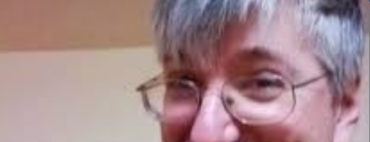 Jack’s guest is the brilliant, multi-talented poet-musician-editor Jacob Smullyan. Smullyan’s new book of prose poems is Errata. Charles Holdefer of Dactyl Review says, “To describe a book as unclassifiable is, of course, to classify it, but that fact is entirely in keeping with the spirit of Jacob Smullyan’s Errata.” Smullyan is also the author of the poem cycle, Dribble. A concert pianist as well as a writer, he is the founder of Sagging Meniscus Press and the forthcoming Exacting Clam magazine.
Jack’s guest is the brilliant, multi-talented poet-musician-editor Jacob Smullyan. Smullyan’s new book of prose poems is Errata. Charles Holdefer of Dactyl Review says, “To describe a book as unclassifiable is, of course, to classify it, but that fact is entirely in keeping with the spirit of Jacob Smullyan’s Errata.” Smullyan is also the author of the poem cycle, Dribble. A concert pianist as well as a writer, he is the founder of Sagging Meniscus Press and the forthcoming Exacting Clam magazine.This is Errata # XVIII:
There is no harm, thought Z., in doing such-and-such. Thus harm and such-and-such become inseparably linked for him, and his eyes, rolling around the lake, reflected a horror he could never understand.
Walking into the summer-house, he tried not to notice the satin curtains. The curtains which, had he murdered B. and wrapped her body in them would still show a slight spotting of blood.
He did not murder B. (There was no B.)
There were no curtains. (There was no summer-house.)
It was not summer. (It is never summer.)
And this is Errata # XIII:
A smart party. Pranks played on and on.
The furnace of Z’s wit withered eyebrows, razed carefully wrought constructions of all sorts: personal loyalties, rivalries, convictions, best wishes.
Without a furnace, Z. cannot be.
With a furnace, Z. cannot be Z.
Jack Foley writes: “Errata, whose concluding sentence is ‘The previous remark, however, may be erroneous,’ is an evocation of poetry as an enormous UNCERTAINTY PRINCIPLE. Every sentence is a ground upon which we may stand only until the next sentence removes it and we are left—nowhere. The music of the words themselves carries us through an experience of the void which is, oddly enough and in the great tradition of Surrealism, sometimes hilarious. I think as I read this book of Samuel Beckett’s remark upon arising in the morning: ‘Done it again!’ Each stanza gives rise to the hope that something is real; each stanza reveals that hope as without foundation.”
Part One of Two

